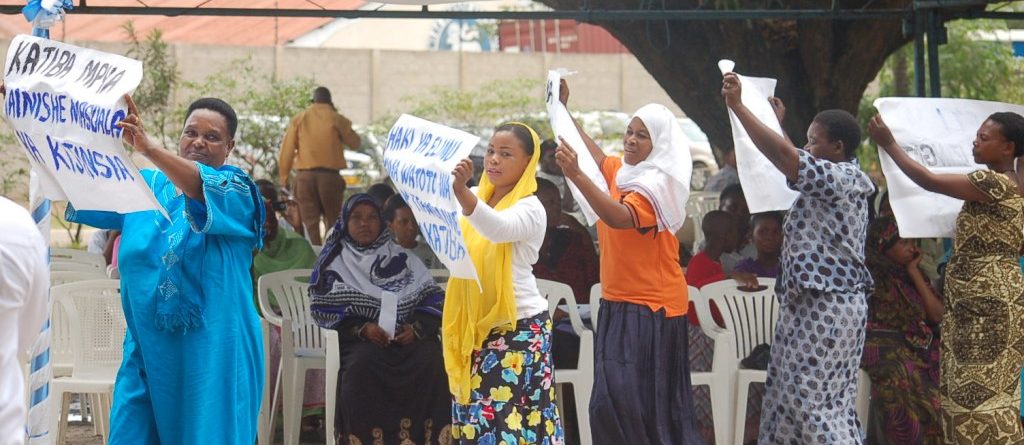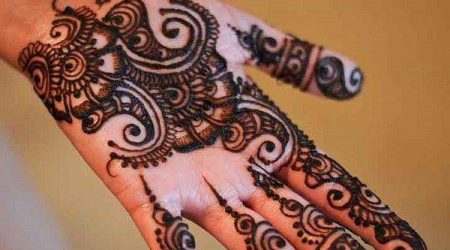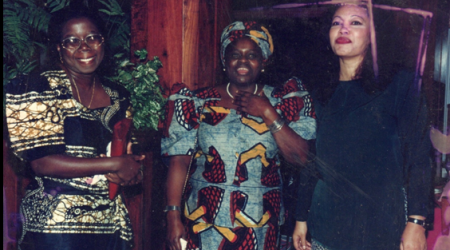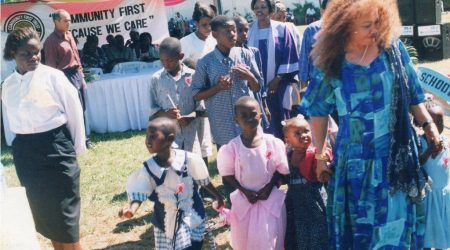World Peace Day
SEPTEMBER 21 has been designated the International Day of Peace.
It was in 1981 that the UN passed a Resolution to have the International Peace Day, which was commemorated for the first time globally, on 21, September, 1982.
The slogan for the 2015 World Peace Day is “Partnerships for Peace, Dignity for All”.
As we mark the International Peace Day in Tanzania, we should keep in mind that Peace/Amaan, should start at the level of the family and the community. As a nation, we cannot ignore the lack of peace in a large number of families across the country.
Below is a checklist of the gaps in families and in communities, which need to be addressed by Tanzania, so that Peace at family and community level would have a multiplier effect and spread out throughout the nation, in order to build a strong foundation for us, and for future generations.
1. One in 3 women have experienced Intimate Partner Violence (IPV) in Tanzania.
This takes the form of verbal abuse; mental cruelty; deprivation of sustenance; physical violence; withholding of the freedom to work or in movement; withholding support to care and treatment when sick; isolation from the mainstream, when women are excluded from social participation.
Tanzania needs legislation, a Domestic Violence/Intimate Partner Violence Act, which would amend the Penal Code so that punishments are meted out to offenders; and reparations made to the survivor.
2. Two in 10 elderly people are being abused; deprived of sustenance; deprived of medical care; deprived of shelter; having their savings and/or pensions taken away; accused of witchcraft practice and getting maimed, isolated from the mainstream, or killed; suffering from the mental cruelty of other family members; living in fear that they may get thrown out of their homes and having to seek shelter in places of worship- mosques/church, or sleep in the street; excluded from social participation.
Tanzania needs to address Elderly People Violence by enacting legislation for the protection of older persons..
3. An estimated 16-23 percent of girls are married off below the age of 18 which deprives them of education; deprives them the freedom of choice in marital partner; getting pregnant and having babies at adolescence which puts them at risk of suffering from fistula and impairment of their health; depriving them of the right to be girls by pushing them into marriage and becoming adults before their appropriate time; being secluded by possessive spouses, which makes them unable to participate fully in social interaction.
The Law of Marriage Act 1971 needs revisiting, so that there is uniformity in the definition of the girl child as per all the nation’s legislations and policies.
This would ensure the protection of the girl child from early marriage and from forced; coercive marriage.
4. An estimated 14-15 percent of Tanzanian girls in 8 regions undergo female genital cutting, or female genital mutilation (FGM) every one- two years.
Despite the enactment of the Sexual Offenses Special Provisions Act, SOSPA 1998, which has criminalized female genital cutting, and which has amended the Penal Code which has provisions for punishment, FGM is still taking place in Tanzania. It has gone underground, outside the watchful eye of civil society organizations and away from the perusal of law enforcement agencies.
Some girls who are from the ethnic groups which practice FGM are keen to undergo the cutting because they have been inculcated with the belief that an uncut woman is unclean and not deserving of respect from her peers, and from her community.
They have also been made to believe that if they remain uncut, their chances of getting married would reduce.
Globally, more than 125,000,000 women and girls have undergone FGM, and a further 3,000,000 girls in Africa will undergo FGM annually, if the trend is not eliminated. In Africa, 28 countries, including Tanzania, practice FGM. (Source: UNICEF).
5. Among female domestic workers, an estimated 39 percent are child domestic workers, ranging in age between 12-16 years of age. These child domestic workers are from poor, impoverished families, from rural communities, who are trafficked to urban areas and cities in Tanzania, where they are employed as domestic workers. (Source: LS/TAMWA).
Tanzania is a signatory to the Convention on the Rights of the Child, which makes the nation obligated under Article 32 “To protect children from employment that is likely to be hazardous to their health; or to interfere with their education and their development”.
The ILO Convention No. 138 provides the required standards for the protection of the health; and the security of the child.
The Tanzania labor law is clear on the employment of children. The Employment Ordinance (Section 77) prohibits the employment of children under the age of 15 years.
Also, the employment of children in hazardous jobs is prohibited under Section 82 of the Ordinance. (source: Robert V. Makaramba/1998).
However, Studies conducted by the Tanzania Media Women’s Association TAMWA, and by the ILO, show that despite the legislation, and despite the various international conventions on the protection of children, Tanzanian families continue to employ child domestic workers, while paying them much, much less than what the minimum wage requires.
In a Study conducted by this writer on female domestic workers (Leila Sheikh/TAMWA) in Dar es Salaam, child domestic workers are more vulnerable than adult female domestic workers.
The female child domestic workers are more prone to getting sexually abused; being physically beaten; being denied basic amenities like food and medical treatment; being subjected to verbal and mental cruelty; being isolated from society and some being locked in the house, prisoners in reality, so they would not run away.
The often repeated explanation is abject poverty among the families in rural communities which ‘sell’ their girl children to human traffickers who in turn act as agents who find placements for the girls in domestic work in urban areas.
However, in a country like Tanzania with vast reserves of land and mineral resources, abject poverty should be an aberration, not the norm, and we, as a nation, should make a collective decision to refuse to be poor.

6. One in 6-7 women have experienced sexual harassment.
This has taken the form of groping; verbal abuse; sexual innuendo; smear campaign against a woman’s dignity; sexploitation in places of employment.
Sexual harassment is a criminal offense in Tanzania, yet it remains insidious in the lives of most women. It is a crime which could witnessed by people, that it is taking place, yet most people would be loath to acknowledge its existence, or agree to give testimony that it has taken place.
Sexual harassment impacts on a woman’s mental and emotional well being. Sexual harassment impacts on a woman’s productivity at the work place, or in the home. Sexual harassment impacts on the incomes of women, after they lose their employment when they refuse sexual overtures from male bosses. Sexual harassment also impacts on a woman’s self esteem, when she is being constantly being barraged with unwanted sexual advances.
Here, there, is no Peace, because the struggle that a woman has to put up to deflect the sexual harassment is extremely stressful and most unpleasant.
Tanzania needs to amend SOSPA 1998, and make it mandatory for every place of employment, be it in the formal sector; or in the informal sector, to have a Gender Desk which would monitor the interactions of employees, while operating as a space where women, and sometimes men, should report on incidents of sexual harassment perpetrated on them.
7. Children need protection from sexual abuse.
The law, SOSPA 1998, is quite explicit on the definition of child sexual abuse; what constitute child sexual abuse; the punishment – life imprisonment for the perpetrator; and the provisions on incest, or child sexual abuse by a guardian or family member.
More public education through the media and outreach needs to be done to create more awareness on child sexual abuse so that when it takes place, the matter is reported to law enforcers immediately after it happens, and due action taken against the perpetrator.
“Together We Can Make it Happen”
Leila Sheikh














Leave a Reply